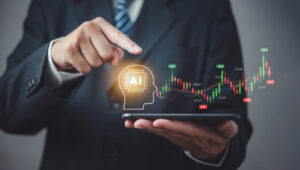The landscape of ‘education’ is rapidly evolving, and at the forefront of this change is the integration of AI video for e-learning. This revolutionary approach is transforming how ‘digital creators’ and learners alike engage with educational content. By harnessing the power of artificial intelligence, educators can create more dynamic, interactive, and personalized learning experiences.

The Rise of AI in Education
In recent years, the incorporation of AI technology in education has gained significant traction. It offers an innovative way to enhance learning by making it more accessible and tailored to individual needs. As a result, AI video for e-learning is becoming increasingly popular among educators and institutions looking to stay ahead of the curve.
Understanding AI Video for E-Learning
At its core, AI video involves using ‘artificial intelligence’ to create or enhance educational videos. This can include using algorithms to adapt content in real-time, providing personalized feedback, or even generating entirely new content based on learner interaction. The possibilities are endless, and the potential to create AI video generators is just beginning to be realized.
Benefits of AI Video in E-Learning
The implementation of AI video in ‘e-learning’ offers a myriad of benefits:
- Personalization: AI algorithms can tailor content to meet the specific needs of each learner, enhancing their understanding and retention of information.
- Interactivity: AI can create interactive videos that engage learners more effectively than traditional methods.
- Accessibility: AI-driven tools can transcribe, translate, and adapt content, making education more accessible to a global audience.
Challenges and Considerations
While the benefits are substantial, there are also challenges to consider when integrating AI video for e-learning:
- Privacy Concerns: As with any technology, there are concerns about data privacy and how information is used and protected.
- Cost: Developing and implementing AI-driven solutions can be costly, which may be a barrier for some institutions.
- Technical Expertise: There is a need for skilled professionals to develop and manage AI-based educational tools.
Real-World Applications and Case Studies
Several institutions have successfully integrated AI video into their ‘e-learning’ platforms. For example, some universities are using AI to create personalized learning paths for students, while others are developing AI-driven virtual tutors that provide real-time feedback. These applications not only enhance the learning experience but also demonstrate the vast potential of AI in education.
The Future of AI Video in E-Learning
The future of AI video for e-learning is bright. As technology continues to advance, so too will the capabilities of AI-driven educational tools. We can expect to see more immersive and personalized learning experiences, as well as increased accessibility and engagement across diverse populations.
Preparing for the Future
For ‘digital creators’ looking to leverage AI video in ‘e-learning’, it’s important to stay informed about the latest trends and developments in the field. By embracing this technology, educators can create more effective and engaging learning experiences that meet the needs of today’s learners.
Conclusion
In conclusion, the integration of AI video into ‘e-learning’ represents a fundamental shift in how education is delivered and experienced. By harnessing the power of ‘artificial intelligence’, educators can create more personalized, interactive, and accessible learning experiences that meet the needs of a diverse and ever-changing learner population. As we continue to explore the potential of AI in education, one thing is certain: the possibilities are endless.

FAQs
What is AI video in e-learning?
AI video in ‘e-learning’ involves using ‘artificial intelligence’ to create or enhance educational videos, offering interactive and personalized learning experiences.
How does AI video personalize learning?
AI algorithms tailor content to meet individual learner needs, enhancing understanding and retention by adapting in real-time.
What challenges exist with AI video for e-learning?
Challenges include privacy concerns, cost, and the need for technical expertise in developing and managing AI-driven educational tools.
For more information on AI applications in education, visit Adobe’s guide to AI for graphic designers.







